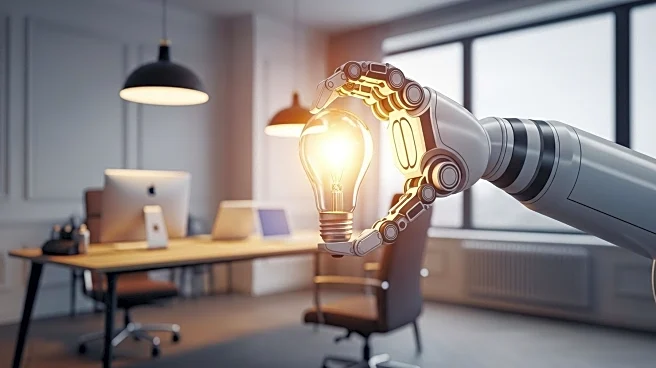What's Happening?
A Stanford University study has found that artificial intelligence is significantly affecting the job prospects of early-career workers aged 22 to 25. The research, conducted by economists Erik Brynjolfsson, Ruyu Chen, and Bharat Chandar, shows a 13% relative decline in employment for young workers in AI-exposed jobs. In contrast, employment for older workers and those in less exposed fields has remained stable or grown. The study highlights the disproportionate impact of AI on entry-level positions, raising concerns about the future of the workforce.
Why It's Important?
The findings of the Stanford study are crucial as they provide empirical evidence of AI's impact on the labor market, particularly for young workers. This could lead to significant shifts in employment patterns, with potential long-term consequences for workforce development and economic stability. Industries that heavily adopt AI may need to reconsider their hiring practices and training programs to ensure the sustainability of their workforce. Policymakers and educators might also need to address these challenges to prevent a 'lost generation' of workers.
What's Next?
The study suggests that industries and policymakers may need to adapt to the changing job landscape by developing strategies to integrate AI in a way that complements human labor rather than replacing it. This could involve creating new educational programs and policies that focus on skills development for young workers. Companies might also explore ways to use AI to augment rather than automate tasks, preserving entry-level opportunities and fostering workforce growth.











